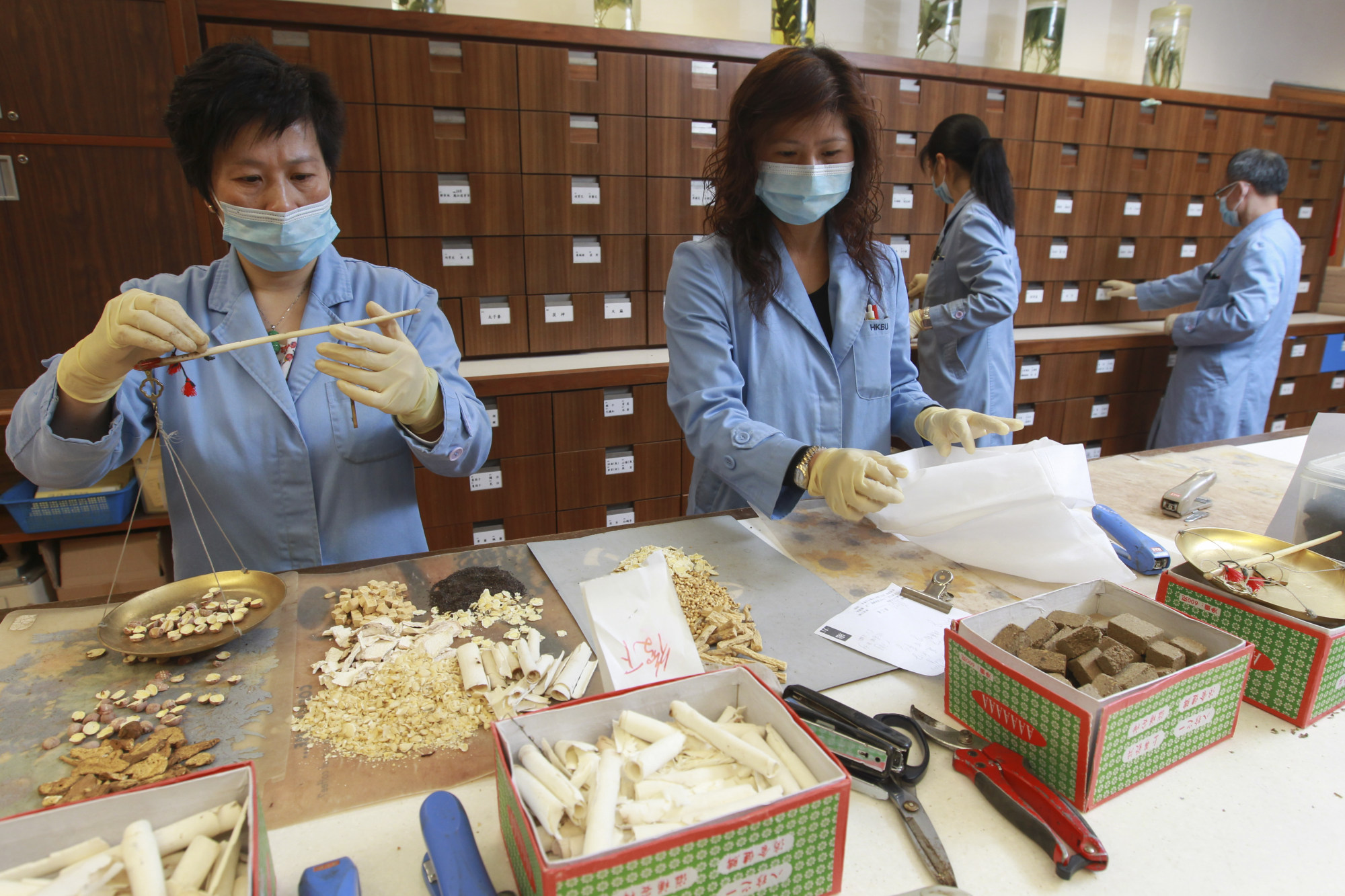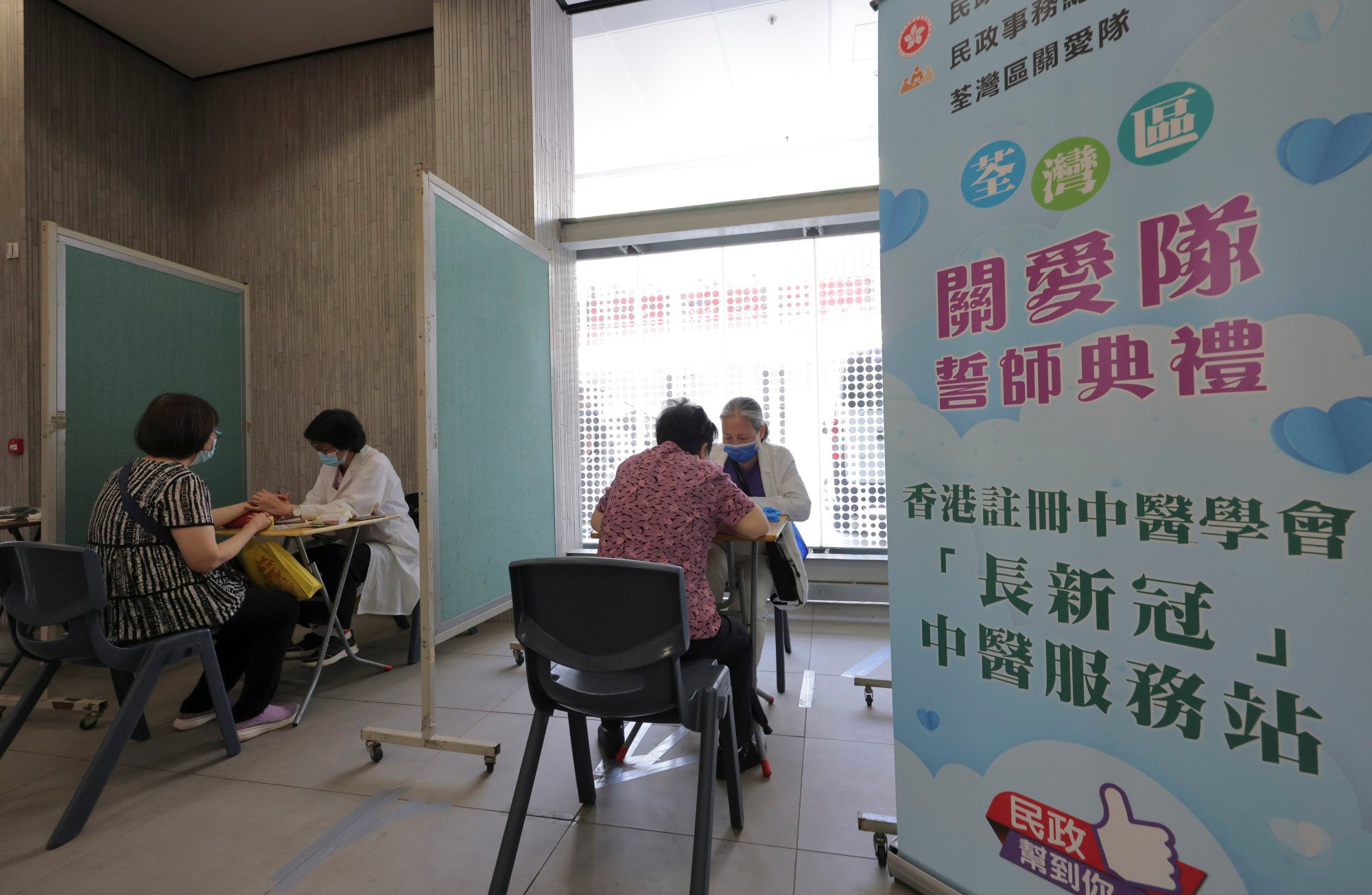
 i_need_contribute
i_need_contribute
Our Hong Kong Foundation noted on Thursday that the Chronic Disease Co-Care Pilot Scheme starting next month would not involve TCM practitioners who could play a bigger part in primary healthcare.
Dicky Chow Ka-chun, the organisation’s researcher, said Hong Kong had about 8,300 doctors and 8,000 TCM practitioners offering primary healthcare services in the community.

Traditional Chinese medicine played a role in Hong Kong in patient care during the Covid-19 pandemic. Photo: Dickson Lee
“Chinese medicine practitioners have a huge potential to be used by the government to provide primary healthcare services and can even help double the number of service providers,” he said.
He recommended including them in the screening effort in future, after the pilot scheme ends in three years.
The Chronic Disease Co-Care Pilot Scheme allows people aged 45 and over with no medical history of diabetes or hypertension to be screened at subsidised rates from mid-November. Their consultation and medication fees will also be discounted.
The government has been promoting the development of TCM in recent years and pledged last year to come up with a blueprint for it. A position of commissioner for Chinese medicine development will also be created.
The city’s first Chinese Medicine Hospital will open in 2025 at Tseung Kwan O, run by Baptist University.
TCM played a big role during the Covid-19 pandemic, when the government provided recovered patients up to 10 free rehabilitation sessions at the city’s 18 public-funded Chinese medicine clinics.
Chow said TCM might be better than Western medicine at treating some conditions, such as pain management, and suggested having more public-private partnership programmes to offer Chinese medicine to patients.
He said the Health Bureau’s six reference frameworks for primary healthcare professionals on preventive care and disease management could be updated to add aspects of TCM.
Chow said the Primary Healthcare Blueprint released last year mentioned that different medical professions would be offered courses on primary healthcare.
“There are some NGOs organising related courses to Chinese medicine practitioners, but these are short-term or one-time courses, not systematic or officially approved,” he said.
He urged the Primary Healthcare Office to consult the TCM sector and design training for practitioners to learn about primary healthcare and have them accredited.

Community care booths in Tsuen Wan. Photo: Jelly Tse
Fiona Lam Pui-yan, vice-chairman of the Hong Kong Registered Chinese Medicine Practitioners Association, said demand for TCM services had been rising and adding them to the Chronic Disease Co-Care Pilot Scheme would give patients more choice.
“When patients are close to having hypertension and diabetes, intervention from Chinese medicine such as herbs, acupuncture and a medicinal diet can be effective in controlling the onset,” she said.
“When patients have already been diagnosed and are taking Western medicine, Chinese medicine can help relieve symptoms such as dizziness, headache, water retention, itchy skin and fatigue and improve their quality of life.”
Lam agreed that TCM practitioners should receive more training on primary healthcare.
“They may need to learn about the jargon used in Western medicine so that they can communicate with patients whose conditions might also be treated by doctors or physical therapists,” she said.
“They can learn how to be a part of the team taking care of patients.”
The Health Bureau said authorities would review the operational details and effectiveness of the pilot scheme, as well as enhance the role played by TCM practitioners in providing primary healthcare services.